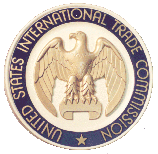
 Summary: Apple's patent aggression against rival smartphones is failing the early tests (potentially good news for Android); federal intervention helps those who support abolishment of some patents
Summary: Apple's patent aggression against rival smartphones is failing the early tests (potentially good news for Android); federal intervention helps those who support abolishment of some patents
BULLISH AND BULLYING toy makers from California have not gotten their way at the ITC (embargo/sanction appeal), which they attempted to use for blocking import of Android devices and Nokia devices. Yes, Apple may have started it. "ITC staff sides with Nokia in Apple complaint" says one article and another says that "Nokia Didn’t Violate Apple Patents" according to ITC staff. Might this also put Android in the clear (as far as the ITC goes)? This may be interesting and the patents are worth another look because the complaints are dissimilar.
The smartphone market is highly lucrative, has many competing players, and involves countless patents. In other words, it’s a recipe for lawsuits. In the last month alone, Microsoft lobbed a suit at Motorola, who in turn sued Apple. Nokia and HTC both have sued Apple, and Apple has sued both Nokia and HTC.
The web of competing claims on smartphone technology might seem a uniquely 21st-century problem. But according to legal scholar Adam Mossoff, the smartphone woes are reminiscent of a forgotten 19th century legal melee: the Sewing Machine War.
USPTO Not At All Happy About Justice Department Saying Genes Shouldn't Be Patentable
Last week, the Justice Department surprised a ton of people by filing an amicus brief saying that isolated genes should not be patentable. The NY Times has an article quoting a bunch of outraged patent attorneys, who are worried about their own jobs more than anything else, but also has some tidbits suggesting that the Patent and Trademark Office is not at all happy either, despite the fact that they're both part of the same administration.
The patenting of genes is not the highest profile political issue today, but Professor Ian Frazer, the inventor of the cervical cancer vaccine, believes there is no more important public health issue before the Parliament.
And so it was refreshing to see that at least for one evening a few weeks ago a rare bipartisanship seemed to be within our grasp.
A couple of years ago, we questioned why NASA was auctioning off patents that were taxpayer funded. It appears that NASA doesn't care.Ben points us to the news that NASA is about to auction off a bunch of other patents as well, including five patents around "automated software generation." There's simply no reason not to put this research into the public domain where it can actually be used to benefit both commercial and non-commercial projects. By auctioning off a patent monopoly, it will almost certainly be using taxpayer-funded research to stifle innovation.